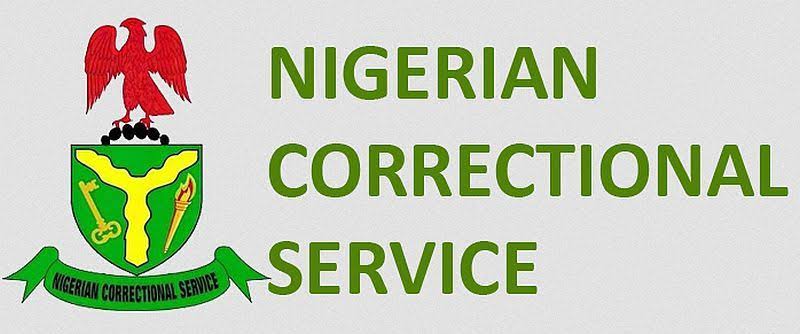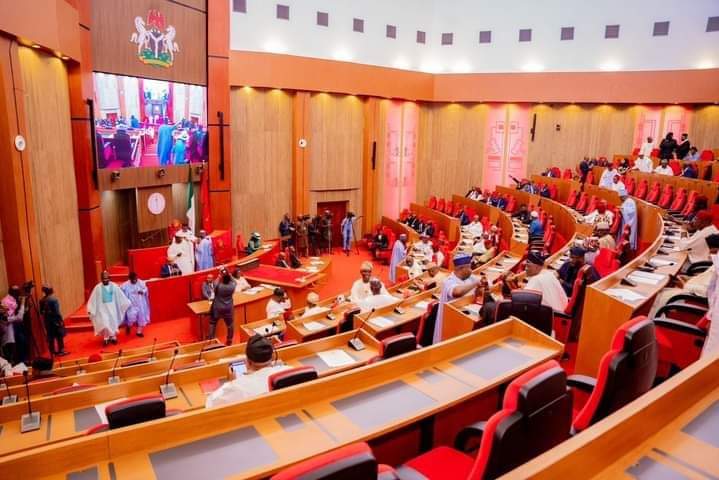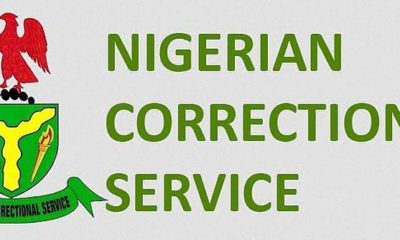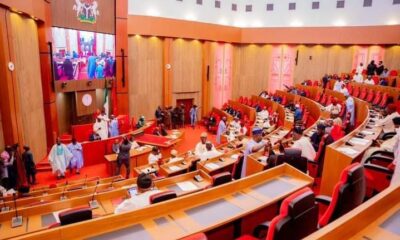NEWS
Senate approves N17.3tr 2022 Revised budget, raises recurrent expenditure by N198.77bn

**Okays N4trn subsidy, increases oil benchmark to $73
The National Assembly on Thursday passed an aggregate expenditure of N17.3 trillion as the revised budget for the 2022 fiscal year which mainly raised recurrent expenditure by Nl98.77bn while capital expenditure remained the same.
The amount represented an increase of N192.5 billion from the N17.1 trillion approved and assented to last December.
The passage came after the consideration of a report by the Appropriations Committee on the 2022 Appropriations Bill in both chambers.
Out of the N17.3 trillion passed, N817.6 billion is for Statutory Transfer; N7.1 trillion is for Recurrent Expenditure; Capital Expenditure remained at N5.4 trillion, while N3.97 is for Debt Service.
The parliament also approved a revised 2022 fiscal framework, raising the oil benchmark to US$73 as proposed by President Muhammadu Buhari.
The national assembly oil production volume of 1.600 million per day; Petroleum Motor Spirit (PMS) subsidy of N4.00 trillion (NGN); and a cut in the provision for Federally-funded upstream projects being implemented by N200 billion from N352.80.
The two chambers also approved the fiscal deficit of N7.35 trillion, an increase of N965.42 billion, representing 3.99% of Gross Domestic Product (GDP).
The incremental deficit, it said, would be financed by new borrowings from the domestic market.
The lawmakers also raised the budget of the National Assembly and its agencies to N153 billion from the earlier N139 billion.
The breakdown of the National Assembly votes in the 2022 revised budget are:
While approving an increase in the Federal Government Independent Revenue of N400 billion, the chambers gave its approval for an additional provision of N182.4 billion to cater to the needs of the Nigeria Police Force.
It approved net reductions in Statutory Transfers by N66.07 billion.
Read Also >> NASS Complex Renovation: Clerk Issues Relocation Notice To Lawmakers
A breakdown of the net reductions is as follows: NDDC, by N13.46 billion from N102.78 billion to N89.32 billion; NEDC, by N6.30 billion from N48.08 billion to N41.78 billion; and UBEC, by N23.16 billion from N112.29 billion to N89.13 billion.
Others are Basic Health Care Fund, by N11.58 billion from N56.14 billion to N44.56 billion; and NASENI, by N11.58 billion from N56.14 billion to N44.56 billion.
President Buhari, in a letter dated 5th April 2022, requested the National Assembly to adjust the 2022 fiscal framework.
He said doing so became necessary in view of new developments in both the global and domestic economies.
Lawmakers, who took turns to make contributions during consideration of the report on the review of the 2022 fiscal framework, blamed the country’s economic downturn on crude oil theft.
Senator Olubunmi Adetunmbi (Ekiti North), said the federal government and security agencies owe it as a duty to stop the stealing of our commonwealth.
He lamented that at a time when most countries of the world are reaping bountiful harvest due to the increase in crude oil prices occasioned by the Russia-Ukrainian crisis, Nigeria is left out owing to its inability to meet its OPEC quota.
The Senate Leader, Yahaya Abdullahi, who spoke along the same lines as Adetunmbi, said the country should be in a state of mourning over what is currently happening to it.
He attributed the failure of security agencies to protect oil assets as a major reason for the decline of the economy.
He expressed worry over the increasing cases of oil theft in spite of huge resources allocated to the military, police, and other security agencies.
Senate President Ahmad Lawan, in his remarks, called on the Federal Government to take “radical” steps toward stopping the theft of crude oil by economic saboteurs.
He also called for a stop to the importation of refined petroleum products into the country, so as to cut down on expenditures incurred in the process, as well as to maximize profits from crude oil sales.
“This (crude theft) is not something to play politics with, and I don’t think the answers are going to be easy to come by.
“Radical decisions would have be taken, but before we find answers we have to live with this, but we have to be fast as possible in looking for answers.
“I had a session with the Chief of Defence Staff about a month ago, and my discussion with him was on the oil theft and the efforts of our security agencies to combat this menace.
“And like we know, our security agencies are doing their best but we have people – our people – who are sabotaging the oil industry because the oil theft is not perpetrated by somebody else but by people who are citizens.
“I also believe that, whether there is oil theft or not, until we stop the importation of refined products to Nigeria, we will never get the best out of the oil and gas industry,” Lawan said.
Recall that the National Assembly in December 2021, had approved the sum of N442.7 billion for subsidy in the 2022 budget for the period of January to June this year.
Buhari, however, anchored his fresh request on the fact that PMS subsidy was not duly appropriated for in the national budget beyond June.
According to him, the development was as a result of the provisions of the Petroleum Industry Act which stops all such payments past the given June deadline.
In another letter dated 12th April 2022, President Buhari requested the National Assembly to approve an additional N1 trillion to his earlier N2.557 subsidy request to bring the total amount on payments to N4 trillion for the year 2022.
He explained that the additional request was against the backdrop of adjustments to the 2022 fiscal framework which became imperative due to market developments occasioned by the spike in crude prices, following the Russian-Ukrainian war.
The chamber, accordingly, approved the President’s request for an additional N3.557 trillion for PMS subsidy with the passage of the 2022 Appropriations Act (Amendment) Bill, Thursday.
It also approved the N192.52 billion aggregate increase sought by the executive, and an additional provision of N182.45 billion to cater to the needs of the Nigerian Police Force to enhance their morale.
The Senate, after passing the 2022 Appropriations Act (Amendment) Bill, adjourned till the 26th of April, 2021.
NEWS
Lawyer Petitions Court To Declare Rivers Sole Administrator’s Appointment Null

A lawsuit has been filed at the Federal High Court in Abuja, challenging the appointment of Vice Admiral Ibokette Ibas (Rtd.) as the Sole Administrator of Rivers State.
The legal action seeks to nullify his appointment and bar the President from making similar decisions in other states.
The suit, numbered FHC/ABJ/CS/572/2025, was initiated on Tuesday by Abuja-based lawyer Johnmary Jideobi, who argues that the appointment violates Nigeria’s 1999 Constitution.
The President of Nigeria, Bola Tinubu, is listed as the 1st defendant, while the Attorney-General of the Federation, Vice Admiral Ibas (Rtd.), and the Attorneys-General of the 36 states are named as the 2nd to 39th defendants.
Jideobi is urging the court to declare all decisions made by Ibas in his capacity as Sole Administrator unconstitutional and of no effect.
READ ALSO: Tinubu Swears In Ibas As Rivers Sole Administrator
He is also seeking an order preventing the President from appointing Sole Administrators in any state across Nigeria.
Through a team of lawyers led by Chimezie Enuka, the plaintiff is asking the court to rule on the following:
“Whether the President has the constitutional power to remove, suspend, or interfere with the tenure of an elected governor or deputy governor.
“Whether the suspension of the Rivers State Governor and Deputy Governor on March 18, 2025, was lawful.
“Whether the Constitution permits the appointment of a Sole Administrator to govern a state.
Jideobi contends that the only lawful means of removing a governor are outlined in Sections 180, 188, 189, 305, and 306 of the 1999 Constitution, none of which provide for the appointment of a Sole Administrator.
The plaintiff is asking the court to: overturn the suspension of the Rivers State Governor and Deputy Governor, Invalidate the appointment and swearing-in of Ibas as Sole Administrator, Order Ibas to immediately vacate the Government House in Rivers State and Issue an injunction stopping the President from appointing Sole Administrators in any Nigerian state.
In a 32-paragraph affidavit, Jideobi insists that Nigeria operates a federal system of government, where elected governors are not subject to presidential removal.
“As a lawyer, I have never seen the term ‘Sole Administrator’ in the 1999 Constitution,” he asserted.
He further argued that allowing the President to make such appointments could set a dangerous precedent, potentially leading to political instability in the country.
No hearing date has been scheduled yet.
NEWS
Senate Confirms Nwakuche As NCoS Controller General

The Senate has confirmed Sylvester Nwakuche as the new Controller General of the Nigeria Correctional Service (NCoS), following his appointment by President Bola Tinubu on December 13, 2024.
His appointment comes after the retirement of Haliru Nababa.
The confirmation was finalized during Tuesday’s plenary session after the Senate Committee on Interior, chaired by Senator Adams Oshiomhole, submitted its report.
READ MORE: 12 Inmates Escape Kogi Prison, Authorities Launch Manhunt
Lawmakers unanimously approved the committee’s recommendation, officially endorsing Nwakuche’s leadership of the NCoS.
Announcing the confirmation, Senate President Godswill Akpabio urged Nwakuche to take urgent steps to enhance the security of correctional facilities across the country.
“We hope that under your leadership, the era of frequent jailbreaks in the country will come to an end,” Akpabio stated.
This call for improved security comes in the wake of a recent jailbreak at the Medium Security Custodial Centre in Koton Karfe, Kogi State, where 12 inmates escaped in the early hours of Monday, resulting in the death of one correctional officer.
NEWS
Sen. Natasha Moves To Disbar Senate Ethics Chairman

Suspended Kogi Central senator, Natasha Akpoti-Uduaghan, has petitioned the Legal Practitioners Disciplinary Committee (LPDC), seeking the disbarment of Senator Nedamwem Imasuen, who currently serves as the chairman of the Senate Committee on Ethics, Privileges, and Public Petitions.
In her submission to the LPDC, Akpoti-Uduaghan accused Imasuen of being previously disbarred in the United States for professional misconduct.
She cited a ruling from the New York Supreme Court, Appellate Division, dated May 10, 2010, which she claims found him guilty of fraud, misappropriation of client funds, and failure to respond to disciplinary authorities.
READ ALSO: I’ll Never Apologise – Suspended Senator Natasha Fights Back
To substantiate her claims, the senator provided a copy of the Justia New York Case Law 2010, titled Matter of Imasuen, and stated that she would present additional evidence from official records when the case is heard.
According to Akpoti-Uduaghan, Imasuen was disbarred after a complaint was lodged by Daphne Slyfield, a former client who had allegedly paid him significant legal fees but was later abandoned.
The US court determined that he had violated multiple professional rules, leading to his permanent removal from legal practice in the country.
Following his disbarment, Imasuen moved to Nigeria, where he continued to operate as a lawyer while also building a political career.
He eventually won a seat in the National Assembly as the Senator representing Edo South and was later appointed as the chairman of the Senate Ethics Committee, a position that requires unquestionable integrity.
Akpoti-Uduaghan argues that Imasuen failed to disclose this crucial part of his history, both in his legal career and during his political aspirations.
She specifically pointed out that he did not reveal his disbarment in his Form EC9—his sworn declaration of personal details submitted to INEC during his election bid.
Akpoti-Uduaghan’s petition is closely linked to her recent six-month suspension from the Senate, which was enforced under Imasuen’s leadership.
She alleged that Imasuen ignored an interim order from the Federal High Court in Abuja, issued on March 4, which had restrained his committee from proceeding with disciplinary action against her.
According to her, despite receiving the court’s directive, Imasuen “acted in contempt of court” by going ahead with her suspension. She also accused him of deliberately attempting to undermine the judiciary by disregarding the ruling.
Legal experts suggest that if the LPDC rules in Akpoti-Uduaghan’s favor, Imasuen could face serious professional and political consequences, including the potential revocation of his ability to practice law in Nigeria.
As of now, Senator Imasuen has not publicly responded to the allegations.

















